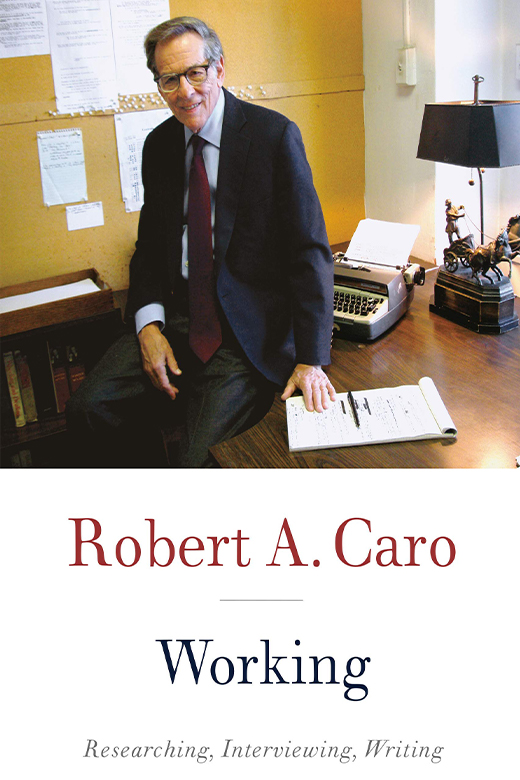By Robert A. Caro
What would give for a couple of hours with Robert Caro?
Well, you can stop calculating the cost of that opportunity. Just buy his newest book, Working: Researching, Interviewing, Writing. I devoured this volume in one day, but it will take many days to work these lessons into my writing life.
Caro, two-time Pulitzer-prizing winning author (The Power Broker, Master of the Senate) has devoted his life to studying political power, how it is amassed and leveraged for good and ill. Two leaders stand as his exemplars: Robert Moses and Lyndon B. Johnson.
In The Power Broker (1974), Robert Caro explores "the realities of urban political power" through the life of Robert Moses, a man who was never elected to a political office yet wielded herculean clout over politicians and the city of New York. Caro calls him the greatest builder in the history of America, maybe the world, and in Robert Caro fashion backs up his claim with facts.
In The Path To Power (1982), The Means of Ascent (1990), Master of the Senate (2002), and The Passage of Power (2012), Caro helps us see political power on a national scale -- power that helps and hurts -- through the life of Lyndon B. Johnson.
As Caro notes in The Passage of Power, “although the cliche says that power always corrupts, what is seldom said ... is that power always reveals." The author has devoted his life to unveiling some of those revelations.
All those patiently but anxiously awaiting Caro's fifth volume on LBJ will delight to read this brief volume. Well, at only 210 pages, "brief" by Caro stands. The author devotes significant space to the writing journey on which he embarked when Robert Moses first captured his attention. He does the same for Johnson. These pages help us see the birth and growth of this preeminent biographical historian. They also serve as an excellent primer to his work.
If Robert Caro stopped with Moses and Johnson the reader would have won, but he does more. He gives us lessons from a lifetime of experience. "Thinking with your fingers", "Turn every page", "What do you see?" and the importance of "a sense of place" are writer's gold. Caro takes us into his office. He shares how he shapes a book and how those books have shaped him. And THANK YOU Robert Caro for including "The Paris Review Interview. It is loaded with insights.
There is a little reduplication in these pages, but that is a necessary result of the way he compiled the work, which is a combination of old and new.
If you only read only one book on the writer's work this year, make it Robert Caro's Working: Researching, Interviewing, Writing. And if writing is not your craft, there is plenty of insight and motivation for all who want to maximize and multiply their life's work.

